 | TODAY IN SCIENCE HISTORY NEWSLETTER - 28 MAY |
| Feature for Today |
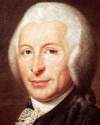 On 28 May 1738, a French physician was born that promoted a law for a humane, mechanized form of execution by beheading, and that it should be used for commoners or nobles alike. On 28 May 1738, a French physician was born that promoted a law for a humane, mechanized form of execution by beheading, and that it should be used for commoners or nobles alike.When the idea was eventually adopted, his name became associated with the device, although his only involvement was to suggest that a machine be used. He was actually not involved in its specific design or its construction. An article in Chambers' Edinburgh Journal explains more about what was and what was not contributed by this man. It may revise your knowledge of him. |
| Book of the Day | |
| |
| Quotations for Today | |
 | "To use Newton's words, our efforts up till this moment have but turned over a pebble or shell here and there on the beach, with only a forlorn hope that under one of them was the gem we were seeking. Now we have the sieve, the minds, the hands, the time, and, particularly, the dedication to find those gems—no matter in which favorite hiding place the children of distant worlds have placed them." (with co-author Dava Sobel.) |
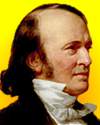 | "America, so far as her physical history is concerned, has been falsely denominated the New World. Hers was the first dry land lifted out of the waters, hers the first shore washed by the ocean that enveloped all the earth beside; and while Europe was represented only by islands rising here and there above the sea, America already stretched an unbroken line of land from Nova Scotia to the Far West." |
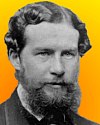 | "If we succeed in giving the love of learning, the learning itself is sure to follow." |
| QUIZ | |
| Before you look at today's web page, see if you can answer some of these questions about the events that happened on this day. Some of the names are very familiar. Others will likely stump you. Tickle your curiosity with these questions, then check your answers on today's web page. | |
| Births | |
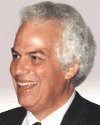 |  Stanley Ben Prusiner, born 28 May 1942, is an American neurologist whose discovery (1982) of the prions as a new biological principle of infection won him the 1997 Nobel Prize for Physiology or Medicine. Stanley Ben Prusiner, born 28 May 1942, is an American neurologist whose discovery (1982) of the prions as a new biological principle of infection won him the 1997 Nobel Prize for Physiology or Medicine. What are prions, and why are they unique among infectious agents? What are prions, and why are they unique among infectious agents? |
 |  A French physician born 28 May 1738 promoted a law for a "machine that beheads painlessly" for all executions, treating nobles and commoners alike, be carried out by means of such a machine. Such consideration was no longer to be the prerogative of nobles. After a series of experiments on cadavers taken from a public hospital, the first of these machines was put up in the Place de Grève in Paris on 4 Apr 1792. A French physician born 28 May 1738 promoted a law for a "machine that beheads painlessly" for all executions, treating nobles and commoners alike, be carried out by means of such a machine. Such consideration was no longer to be the prerogative of nobles. After a series of experiments on cadavers taken from a public hospital, the first of these machines was put up in the Place de Grève in Paris on 4 Apr 1792. Can you name this physician? Can you name this physician? |
| Events | |
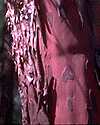 |  In 1919, a solar eclipse permitted observation of the bending of starlight passing through the sun's gravitational field, as previously predicted by theory. Separate expeditions of the Royal Astronomical Society travelled to both Brazil and Africa. The verification of predictions of the theory, proved during the solar eclipse was a dramatic landmark scientific event. In 1919, a solar eclipse permitted observation of the bending of starlight passing through the sun's gravitational field, as previously predicted by theory. Separate expeditions of the Royal Astronomical Society travelled to both Brazil and Africa. The verification of predictions of the theory, proved during the solar eclipse was a dramatic landmark scientific event. What medical condition was treated with taxol? What medical condition was treated with taxol? |
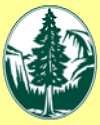 |  On 28 May 1892, the Sierra Club was organized at a meeting in San Francisco. “to explore, enjoy, and rendure accessible the mountain regions of the Pacific Coast; to publish authentic information concerning them,” and “to enlist the support and cooperation of the people and government in preserving the forests and other natural features of the Sierra Nevada.” On 28 May 1892, the Sierra Club was organized at a meeting in San Francisco. “to explore, enjoy, and rendure accessible the mountain regions of the Pacific Coast; to publish authentic information concerning them,” and “to enlist the support and cooperation of the people and government in preserving the forests and other natural features of the Sierra Nevada.” Who was elected as the first President of the Sierra Club? Who was elected as the first President of the Sierra Club? |
 |  On May 28 or a certain year, Jell-o was introduced. Pearl B. Wait, a carpenter and cough medicine manufacturer from LeRoy, N.Y., produced varieties in strawberry, raspberry, orange and lemon fruit flavours, named Jell-O by his wife, May Davis Wait. On May 28 or a certain year, Jell-o was introduced. Pearl B. Wait, a carpenter and cough medicine manufacturer from LeRoy, N.Y., produced varieties in strawberry, raspberry, orange and lemon fruit flavours, named Jell-O by his wife, May Davis Wait. In what decade was Jell-o introduced? In what decade was Jell-o introduced? |
| Answers |
When you have your answers ready to all the questions above, you'll find all the information to check them, and more, on the May 28 web page of Today in Science History. Or, try this link first for just the brief answers. Fast answers for the previous newsletter for May 27: Rachel Carson; Cockcroft-Walton generator, produced large numbers of particles at lower energies (the first atom-smasher); electron microscope; electric incandescent lamp; the decade including the year 1930; 51,800 feet (nearly 10 miles above the earth). |
| Feedback |
 If you enjoy this newsletter, the website, or wish to offer encouragement or ideas, please send feedback by using your mail reader Reply button. If you enjoy this newsletter, the website, or wish to offer encouragement or ideas, please send feedback by using your mail reader Reply button. |
--
If you do not want to receive any more newsletters, this link
To update your preferences and to unsubscribe visit this link
If you do not want to receive any more newsletters, this link
To update your preferences and to unsubscribe visit this link
! !



Δεν υπάρχουν σχόλια:
Δημοσίευση σχολίου